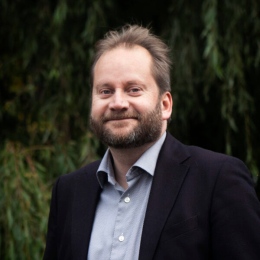414. Henrik Lagerlund on Renaissance Skepticism
No doubt that we're in good hands with interview guest Henrik Lagerlund, who brings his expertise in the history of skepticism to bear on the French Renaissance. Including a look ahead to Descartes!
Themes:
• H. Lagerlund, Rethinking the History of Skepticism: The Missing Medieval Background (Leiden: 2009).
• H. Lagerlund (ed.), Routledge Companion to Sixteenth Century Philosophy (London: 2017).
• H. Lagerlund, Knowledge in Medieval Philosophy (London: 2019).
• H. Lagerlund, “Medieval Skepticism and Divine Deception”, in G. Velteri et al. (eds.) Skeptical Paths (Berlin: 2019), 127-46.
• H. Lagerlund, Skepticism in Philosophy: A Comprehensive, Historical Introduction (New York: 2020)
• H. Lagerlund, Skepticism (Stockholm: 2022).
• H. Lagerlund (ed.), Medieval Scepticism, special issue of Theoria (2022), vol. 88, issue 1.







Comments
Academic and Pyrrhonic Skepticism
I greatly enjoyed the last two lectures. I read Popkin’s “History” about three years. It was truly an eye-opening experience for me. It exposed me to a world of thought and way of thinking that I did not know prior to that experience existed. It significantly changed the way I viewed the world of thought and inspired my pursuit for the final chapter of my life (I am a 75 year old retired attorney) – the creation of an explicit, coherent, understandable and legitimate body of knowledge (Peter, I know you recognize that goal by the German word “Wissenschaft” – I could find no word in English that expressed this idea) that explains how human cognition evaluates its interactions with reality (broadly defined). Another way to state it, my goal is to create a Wissenschaft for truth and truth-seeking. Perhaps the creation of a Wissenschaft of Evaluation would be more technically correct. I realize that as a professional academic philosopher you will most likely claim that Epistemology already does that task, but I completely disagree. That discussion, however, is for another day. For this comment, I thought I could provide a helpful supplement to the excellent discussion in this podcast of the differences between Academic and Pyrrhonic Skepticism as well as to point out my belief that Montaigne’s re-introduction of Pyrrhonic Skepticism to the West is one of the most significant philosophical events in the last 500 years. I start with my alternative view of the differences between Academic and Pyrrhonic Skepticism.
Both Academic and Pyrrhonic Skepticism are forms of evaluation. Their similarities stop there. Comparing Academic Skepticism to Pyrrhonic Skepticism is like comparing (to quote Mark Twain) “a lightning bug to lightning.” Academic Skepticism is based on a method of evaluation (and has little impact on philosophy) and Pyrrhonic Skepticism is probably the most influential Evaluation Paradigm in the history of Western thought.
Academic Skepticism is based on the “Debate and Argument” (D&A) method of evaluation combined with the claim that D&A is the ONLY method of evaluation. In my research, I have found four different methods of evaluations of which D&A is only one. For sake of brevity, I will introduce only one other – what I call “Truth Seeking”. (The name was inspired by your podcast on the Nyaya view of evaluation)
D&A is very popular in our culture. The best example of D&A is law. D&A is best viewed as a game. Like any game, it is governed by rules which are both explicit and implicit. (The best explanation I have found of game playing and rules is Jean Piaget’s work). As in any game, it produces a winner and a loser. Whether one wins or loses depends in part on the rules of the game and in larger part on the talent and skill of the players. For example, I may know the rules of chess as well as Bobby Fisher did, but if we played in his prime (I know he is dead), I would not stand a chance.
D&A is designed to resolve disputes by producing a winner and loser. It is not designed to determine the truth. D&A is, of course, concerned about truth. And, its ideal state, D&A uses truth as a guide, but truth is NOT its goal. For example, I practiced law for 45 years. My clients did not hire me to represent the truth; rather they hired me to win their cases. IMO, D&A is our culture’s dominant method of evaluation. Not only do we use it in law; we use it in politics, in “journalism”, around the dinner table (common in my family of origin), and other interactions. And one need not go to law school and practice law to be able to star at the D&A “game”.
It is no accident that one of the greatest attorney/advocates in human history (Cicero) is the best-known champion of Academic Skepticism. For Academic Skepticism is based on the D&A method of evaluation. As I understand it, Academic Skepticism claims that D&A is incapable of producing undoubtable knowledge and as D&A is the sole method of evaluation, it is impossible to discover any knowledge which cannot be doubted. Hence, Augustine’s famous retort to Cicero (and Carneades): “I am alive and that I cannot doubt.” I personally like Thomas Reid’s retort:
“A man that disbelieves his own existence is surely as unfit to be reasoned with as a man who believes he is made of glass. There may be disorders in the human frame that may produce such extravagances; but they will never be cured by reasoning.” (Reid, Introduction, “An Inquiry into the Human Mind on the Principles of Common Sense”). I realize that Reid was retorting to Descartes, but I think it makes Augustine’s point with more rhetorical flair.
Personally, I think Cicero had the better of Augustine in that exchange. If D&A is the only method of evaluation, then Cicero is correct – it is not designed to seek truth or knowledge but only to produce winners and losers. IMO, the better retort would have been, “If D&A is the only method of evaluation, you are correct; but it is not, there are other methods of evaluation that we can use to seek and to determine truth. Therefore, your argument simply cannot be true.”
This is not to reject D&A as a valid method of evaluation. I think it is a very important and valuable method of evaluation. Every society needs ways of resolving disputes and D&A is by far the best method devised for that purpose. However, Cicero and Carneades were both correct - it leaves a lot to be desired as a method to determine truth. Thus, Academic Skepticism, if properly understood as based on one of several methods of evaluation, is very helpful. It teaches that there are several methods of evaluation, and each has its own particular use. But never use D&A to determine truth. That is like using the wrong tool – one does not use a screwdriver to cut wood, one uses a saw; and one does not use a saw to insert a screw, one uses a screwdriver.
While I am convinced that there are at least three other methods of evaluation, I explain only one. That method I call “Truth-Seeking” (to reiterate, named from your podcast on the Nyaya). This form of evaluation is well-known in our culture with Science being is best known example. But Science is simply one example of this method of evaluation; it is not the ONLY form of Truth-Seeking evaluation. (I find Scientism to be nonsensical – the equivalent of believing in unicorns). I add a bit of detail on this form of truth seeking because it will impact my discussion of Pyrrhonic Skepticism. Truth-Seeking’s structure is (a) an accepted unchanging point of reference, (b) a subject-object relationship, and (c) an accepted criteria from comparing the object being evaluated to the point of reference.
Now we come to Pyrrhonic Skepticism. Unlike Academic Skepticism, Pyrrhonic Skepticism is an Evaluation Paradigm. Thomas Kuhn is the pioneer in developing Paradigm dynamics. For purposes of this comment (Kantian regulative, not constitutive), let us assume there are two major paradigms: Philosophical and Evaluation. In fact, there are at least four (4) maybe five (5) – for example, both Scientific and Theological Paradigms clearly exist in the sense I am using the term, but for purposes of our exercise, all we need are two.
Obviously, there are significant differences between an evaluation method and an Evaluation Paradigm. As I hope my concluding part on the historical impact of Montaigne’s re-introduction of the Pyrrhonic Paradigm makes clear, these two distinct forms of evaluation are simply not comparable.
One example of the differences is all evaluation methods are applicable within the Paradigm. Both D&A and Truth-Seeking can be used” inside” the Pyrrhonic Evaluation Paradigm. It is a bit like comparing a scientific theory or hypothesis to a Scientific Paradigm.
Another example is the method of evaluation. When discussing Academic Skepticism (which is based on a method) I can show its claim all knowledge is subject to doubt cannot be true by showing other methods of evaluation exist. But I cannot use such a simple method of evaluation on Pyrrhonic Skepticism. Kuhn spent his lifetime developing the methods by which Paradigms (Scientific Paradigms in particular) are evaluated. An explanation of Kuhn’s theories of Paradigm dynamics is well beyond the scope of this comment. For our purposes, it will hopefully suffice to state that Paradigms have a complex structure, which can be modified, branched, or replaced and leave the issue at that.
To show how the Pyrrhonic Evaluation Paradigm works, I will use the example of two well-known conflicting Paradigms. While your podcast has provided many examples of conflicting Philosophical Paradigms, I use how I understand those of Plato and Aristotle. Plato claimed that reality was based on immaterial and unchanging Eidos which human cognition accesses via rational discussion and remembrance. Aristotle completely rejected the existence of Eidos and instead asserted the reality contained unchanging principles he called Arche which human cognition accesses via rationality and observation. So, which one is true? How do evaluate these two contradiction Philosophical Paradigms?
Obviously, everyone who has studied Aristotle and Plato (or listened to “The History of Philosophy Without Any Gaps” podcasts on these thinkers) has evaluated these paradigms. So, what do we use? I assert we use Evaluation Paradigms of which Pyrrhonic Skepticism is one of history’s most influential. (You may ask, as there are multiple Evaluation Paradigms (and there are), how does one evaluate these different Evaluation Paradigms? That is a question for another day, but I have an answer.)
Let us now use Pyrrhonic Skepticism to evaluate Plato and Aristotle. As I understand the Pyrrhonic Evaluation Paradigm, it will claim that it is impossible to evaluate Plato and Aristotle. Its reasoning: to evaluate Plato and Aristotle will require a criteria for making that evaluation. But the act of accepting a criteria in turn will require a criteria. And that criteria will also require a criteria, and so on onto infinity. Having rejected any possibility of truth-based evaluation of knowledge or reality, Pyrrhonist Evaluation then defined knowledge and truth entirely pragmatically.
The Pyrrhonic Evaluation Paradigm is probably history’s most influential Evaluation Paradigm. I am convinced Montaigne’s re-introduction of the Pyrrhonic Evaluation Paradigm to the West is one of the most significant (if not the most significant) philosophical events in the last 500 years.
The Pyrrhonic Evaluation Paradigm is incredibly sophisticated. At core, it uses evaluation to deny evaluation is possible. But it is nearly impossible to notice this inherently contradictory trait. But the contradiction is there, as surely as it is in Zeno’s paradox of Achilles and the Tortoise - if the Pyrrhonic Evaluation Paradigm is true, it is false. For if I cannot evaluate, how do I know the Pyrrhonic Evaluation Paradigm is true? And, if it Is not true, why should I accept it? Remember, we cannot use D&A to do so. The Pyrrhonists are themselves using “Truth-Seeking” evaluation. But, notice that they did so by using two (2) of the three (3) components of that method. They ignored the need of a common unchanging point of reference to engage in this practice. This is a misuse of the method of Truth-Seeking evaluation that will dominate Western Thought after Montaigne re-introduces this Paradigm.
Per my research, Hume was the first major modern thinker to use the Pyrrhonic Evaluation Paradigm to construct one of history’s most influential Philosophical Paradigm. (Per Popkin, Hume got it from Bayle who in turn got it from the sources you discuss in these podcasts). For any reader who doubts that Hume is based on Pyrrhonism, I refer to the recent work by Brian Ribeiro “Sextus, Montaigne, Hume: Pyrrhonizers.” Just as the Pyrrhonics used evaluation to deny evaluation was possible, Hume used reason to deny reason (he replaced reason with a crude form of stimulus/response behaviorism (he called it ‘association’) and custom). Thus, on its own terms, it is impossible to evaluate Hume’s Philosophical Paradigm, but that did not stop Hume from using reason to argue that it was true. I think Karl Otto Appel stated that virtually all major philosophers after Hume adopted his Pyrrhonic approach and all self-contradict. It bothered Russell so much that he adopted a rule that no philosophical system could be applied to itself, which I find both ironic and silly. Russell claims to be able to evaluate every other philosophical paradigm ever created but his own! I can explain why I view Russell’s efforts are error, but that is also beyond the scope of this comment.
The Pyrrhonic Evaluation Paradigm is incredibly sophisticated and once Hume “loosed it” upon Western thought, it has wreaked all forms of havoc. For example, I am convinced that, despite its claim of originality, American Pragmatism is, at core, simply a form of Pyrrhonic Skepticism. I could write a lot more on this issue, but I trust have made my point: Academic Skepticism is based on an evaluation method (and has had little if any impact on modern Western philosophical thought) and Pyrrhonic Skepticism is incredibly sophisticated and one of history’s most influential Evaluation Paradigms. Unfortunately, my experience has been that virtually all well-known histories of philosophy ignore the this landmark event and its incredible influence on Hume and the thinkers who came after him. Thank goodness for “The History of Philosophy Without Any Gaps.”
Hopefully, my explanations will be helpful both to you and to your listeners. And my thanks for your program. It has helped me along my journey.
Add new comment